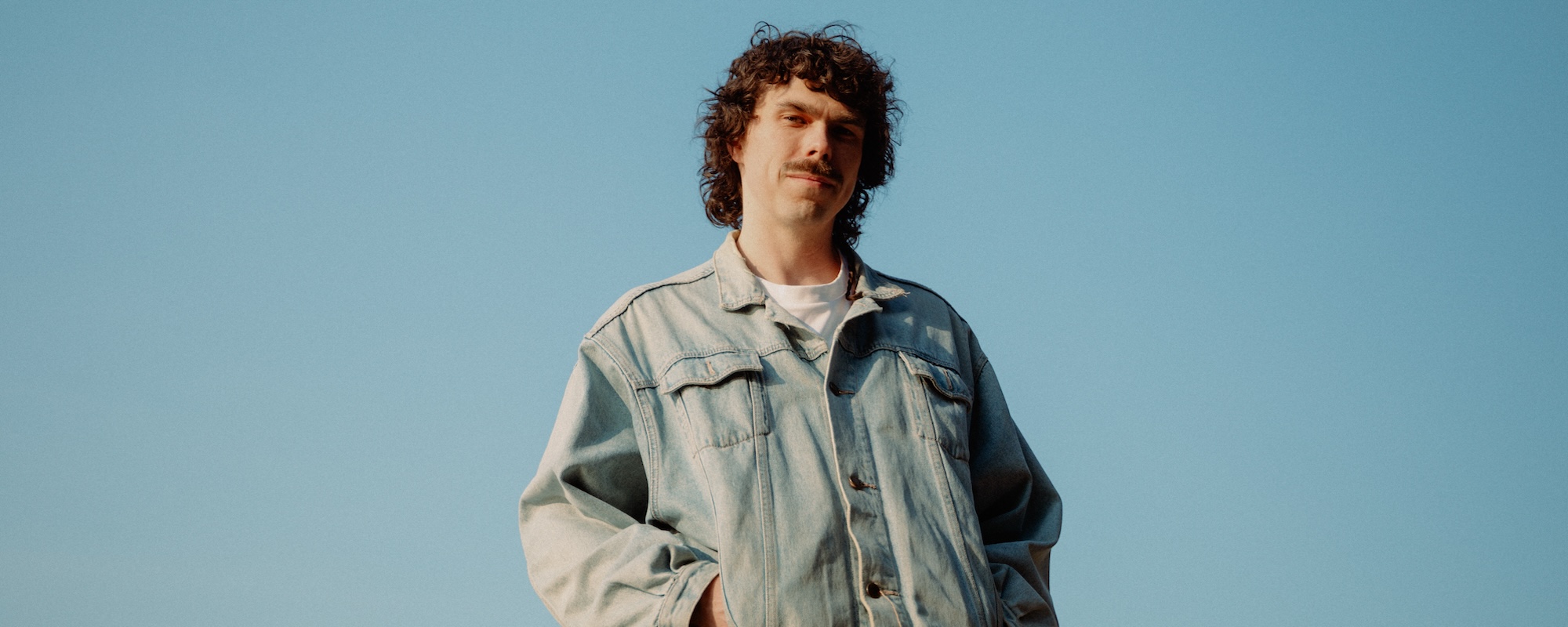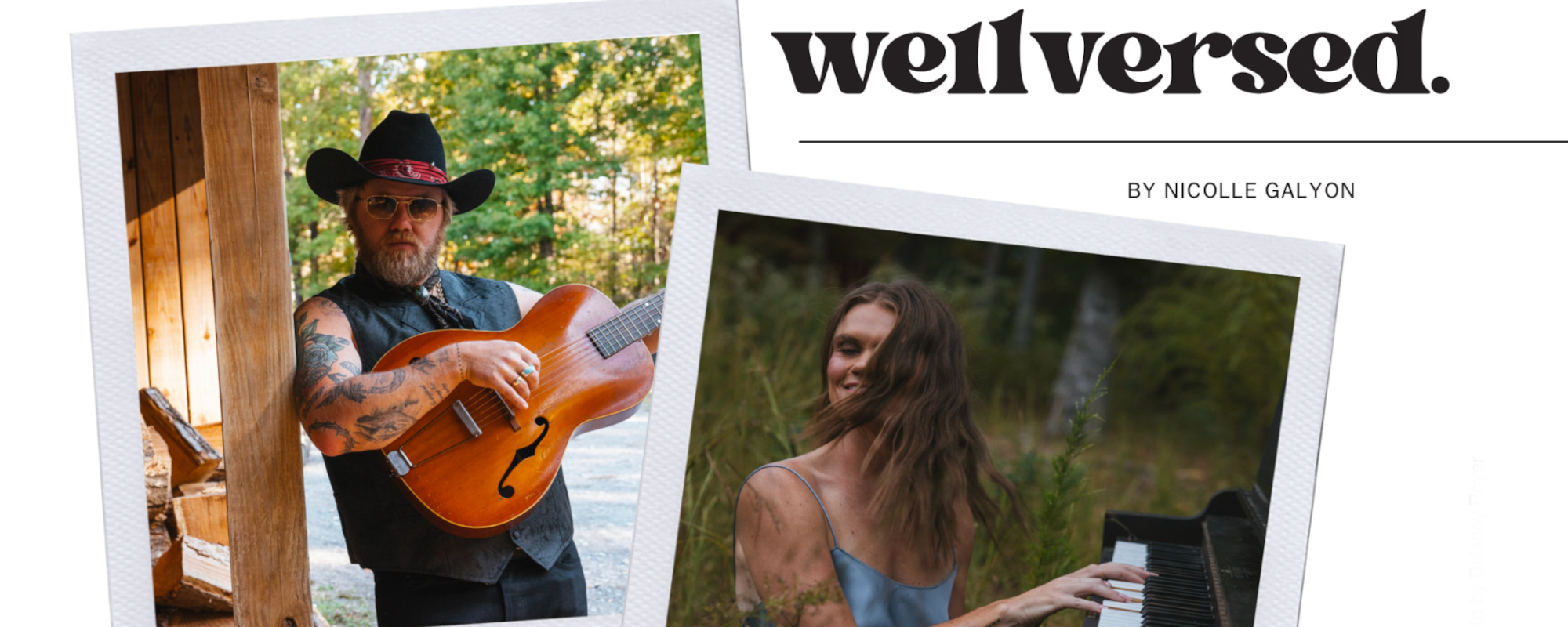Videos by American Songwriter
Sons of Bill are three brothers, Sam Wilson, James and Abe alongside drummer Brian Caputo and Seth Green on bass. They’re distilling their own blend of American alt country-rock up in the Virginia hills and hollows near Charlottesville. The youngest, James, is the principal songwriter of the group and took the time to answer a few questions for American Songwriter after a leg of four CD release parties for their new album, One Town Away.
Give us a little background and tell us about the music you listened to growing up. How influential was your dad in getting you all to pick up instruments and start playing? What are your parents’ musical backgrounds?
Our Dad never had a big record collection growing up, so most of the music we were exposed to was stuff that my Dad would play. Looking back on it, there was a lot of Merle Haggard, Doc Watson, Hank Williams, Mississippi John Hurt, Ralph Stanley, Carter Family, the Kingston Trio, Don Williams, and the list could go on. More than turn us on to particular singers or bands, I think that this really taught us at a young age the importance and value of a great song, no matter who was playing, because in our eyes they were all my Dad’s songs. So while I didn’t get exposed to Merle Haggard’s full catalog ‘til I was in high school, I knew all the words to “Mama’s Hungry Eyes” by the time I was 8 — and I started to understand why that song was great while most of my friends were listening to Sir Mix-a-lot.
How did you get started writing songs? How much of your sound was influenced by your song writing in college?
Both Sam and I started writing at a very young age, but in the beginning it was for our various hard-rock and heavy metal bands we had growing up. When high school hit I really immersed myself in traditional music and played upright bass and sang for a couple local bluegrass bands. I think the moment I came to my own as a songwriter is when I moved to Waco, Texas to work on a farm after high school. The farm manager there turned me on to Steve Earle’s Exit Zero and Townes’ Flyin’ Shoes and it opened up a whole new world of possibility with songwriting. It felt like I was being let in on some big secret, and I really wanted my piece of it.
How has your writing changed in the past three or four years? What has the road done for your writing?
I think more than anything, growing up teaches you to embrace all of your influences. I used to try and focus my writing for whatever band I was in at the time, be it bluegrass, hard-rock, or country. I’ve come full circle now back to my childhood instincts that great songs are just great songs, no matter what the genre is. Once you accept that, it opens up so much possibilities for a band — we can cover Blind Willie Johnson and the Ramones in the same set, and it really doesn’t feel weird at all. Other than that, I think any serious thinker or writer also has to come to grips with the value and importance of his vocation, because I think art and music are some of the most important vocations for any people. This makes you self-reflective about your music. I don’t just sit down anymore and say “I’m gonna write a song about dogs, “but rather you’re always to a certain extent thinking about thinking and writing about writing. I think that’s what every songwriter does to a certain extent.
What’s it been like getting the other guys involved with the writing?
It’s really humbling, but it’s also one of the best parts about being in a band — everybody writes, or at least everybody has a say in the songwriting. I think a lot of singer/songwriters get lost up there own asses because they don’t have a group of guys to help write and edit what they’re doing. It also just gives our band a depth that wouldn’t be there if I were the only writer.
When did you all first start playing together as a group? How did producer Jim Scott help your playing as a group?
We started playing as a group about 3 years ago, sort of accidentally, but the whole thing sort of took off from underneath us, and we’ve been trying to keep up ever since. What made Jim Scott the perfect producer for us was just a similar attitude towards music. Jim is a straight forward, honest, hard-working, old school lover of songs, which has always been our mantra as a band. We didn’t want to our record to get produced in a particular direction, but just wanted it to sound as honest and professional as it could. So we threw up some mics, got some great sounds, and tracked it live.
What has been like touring with groups like Reckless Kelly and Hill Country Revue? How has your live show developed?
It’s a pretty amazing thing to share the stage with some of your songwriting heroes, which for me are writers like Robert Earl Keen, Willy Braun, and Jason Isbell. All of these guys still put on a great show because they truly believe in their hearts what they are singing about. If a band is in it for the money or the girls, you can spot it from the first note.
Our live show has developed in that we approach writing like a country troubadour, but approach playing live like a metal band. It’s a total gift that someone would give up their Friday night and pay 15 bucks to hear you play your songs. We like to leave it all on the stage.
What’s the weirdest place you’ve been so far?
Probably an Army base on the South Korean border. We began the show with a reminder that we weren’t allowed to drink on stage, and ended the show by taking shots of bourbon with the Colonel on the stage. It was a spectacular night, but definitely one of the weirder ones.
What’s your favorite passage from The Sound and the Fury?
My favorite language comes from the first couple pages of the Quentin Compson section, it’s just so beautiful and horrific at the same time. No one, especially any young Southerner, can read it and not be haunted by it.
But my favorite image comes from the opening pages: The retarded Benjamin, the youngest and the least, staring at the golf course and hearing the call for a “Caddy”– which is simultaneously the image of his lost inheritance, the land sold to pay for his brother to go to Harvard, and the name of his sister, the only person that ever loved him who has run off and won’t come back. He doesn’t understand either of these things but can’t stop crying. It’s as though he understands the tragedy, but is incapable of understand why — clutching the fence, and staring at the golf course. I think the mystery of the whole book is contained within that single image. Hopefully I’ll get to write about it someday.
To learn more about Sons of Bill, visit their American Songspace Profile here.













Leave a Reply
Only members can comment. Become a member. Already a member? Log in.